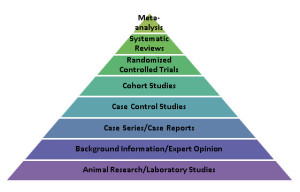 Imagine a power so great that those who possess it are able to heal the sick, and those without it, cause death. By definition, it would qualify as a superpower — and, in fact, one Marvel comic character has claimed this one for their own.
Imagine a power so great that those who possess it are able to heal the sick, and those without it, cause death. By definition, it would qualify as a superpower — and, in fact, one Marvel comic character has claimed this one for their own.
More than seven dozen studies have investigated the impact of this “power” on the outcome of psychotherapy, finding that it contributes nine times more to success than whatever treatment method is employed (1 [see table, p. 258]). And now, a population-based study out of the UK has shown that diabetic patients whose physicians wield this special power have a lower risk of cardiovascular events and mortality.
Strangely, while the evidence shows this ability can be greatly enhanced with proper instruction (1), little time is spent in graduate or medical schools helping students acquire or refine it. The trend continues after formal training. For example, search the web for continuing education on the subject and the offerings are few and far between. And finally, if you think clinical experience contributes to the development of the skill, think again. Despite widespread belief to the contrary, time is not a good teacher, with studies showing no correlation between the strength of the power and the number of years a practitioner has been in the field.
So, what exactly is the “it” we are talking about?
Notice your reaction when I tell you…
EMPATHY
Skeptical? Surprised? Bemused? Knew it all along?
Whatever your response, the documented power of empathy to heal (or harm) makes clear more attention to the skill is warranted in our professional development efforts. What steps can clinicians take in this regard? A recent meta-analysis containing every study on the subject to date concludes, since “clients’ reports of therapist empathy best predict eventual treatment outcome, … regularly assessing … the client’s experience of empathy, instead of trying to intuit whether therapist behavior is empathic or not” is key.
Regularly assessing the client’s experience instead of trying to intuit.
Two decades ago, my colleagues and I developed a brief tool to do just that. Known as the Session Rating Scale, or SRS, it’s been vetted in numerous clinical trials and shown to be a valid and reliable way for clinicians to solicit feedback from clients regarding the quality of the therapeutic relationship (including empathy).
If you don’t already have a copy, you can get yours free by clicking here. Several web-based systems exist for administering and interpreting the data you gather, all of which offer free trials. More, a brand new book, and series of “how-to” manuals are available which provide step-by-step directions for using the scale in diverse settings and populations. Finally, registration for two training workshops is now open where you can get hands on training on using the measure to improve your therapeutic effectiveness. Each year, these events fill up months advance. Click here for more information.
That’s it for now!
Until next time,
Scott
Scott D. Miller, Ph.D.
Director, International Center for Clinical Excellence
P.S.: The photo at the outset of this post displays two cards from the Thoth Tarot: (1) The Lovers; and (2) Death. The first is about the possibilities inherent in uniting through love and acceptance. The second, about transformation. Sounds like psychotherapy, eh?



Which Marvel hero?
Empath I think is the name of the character